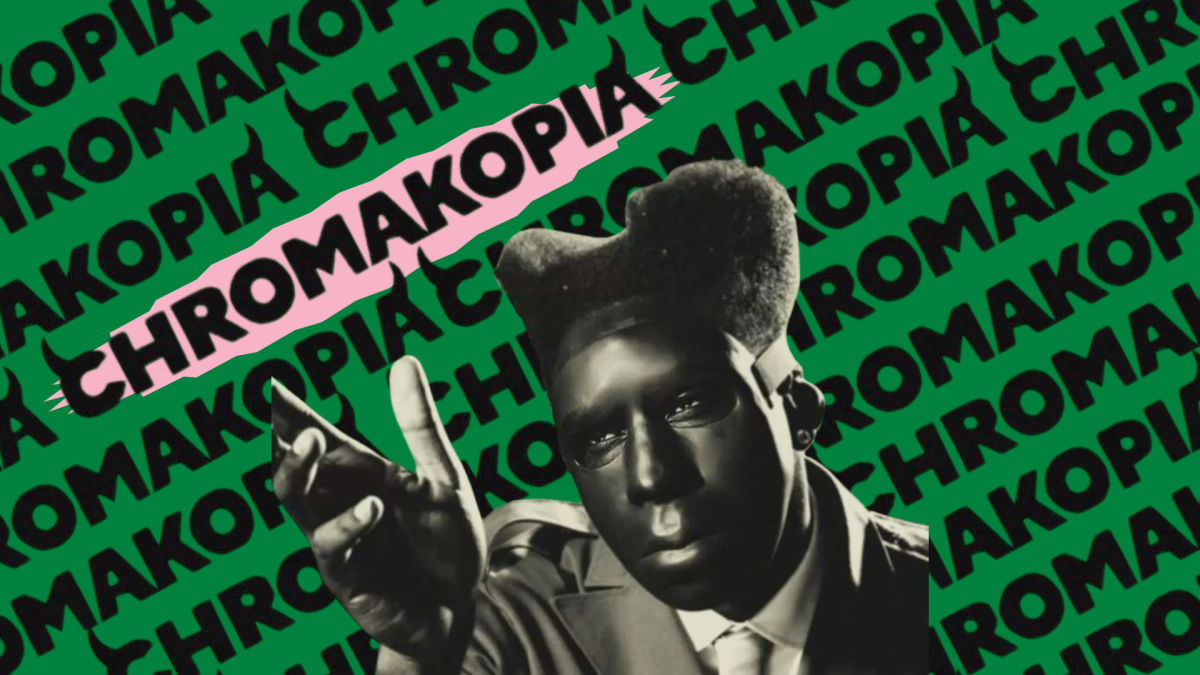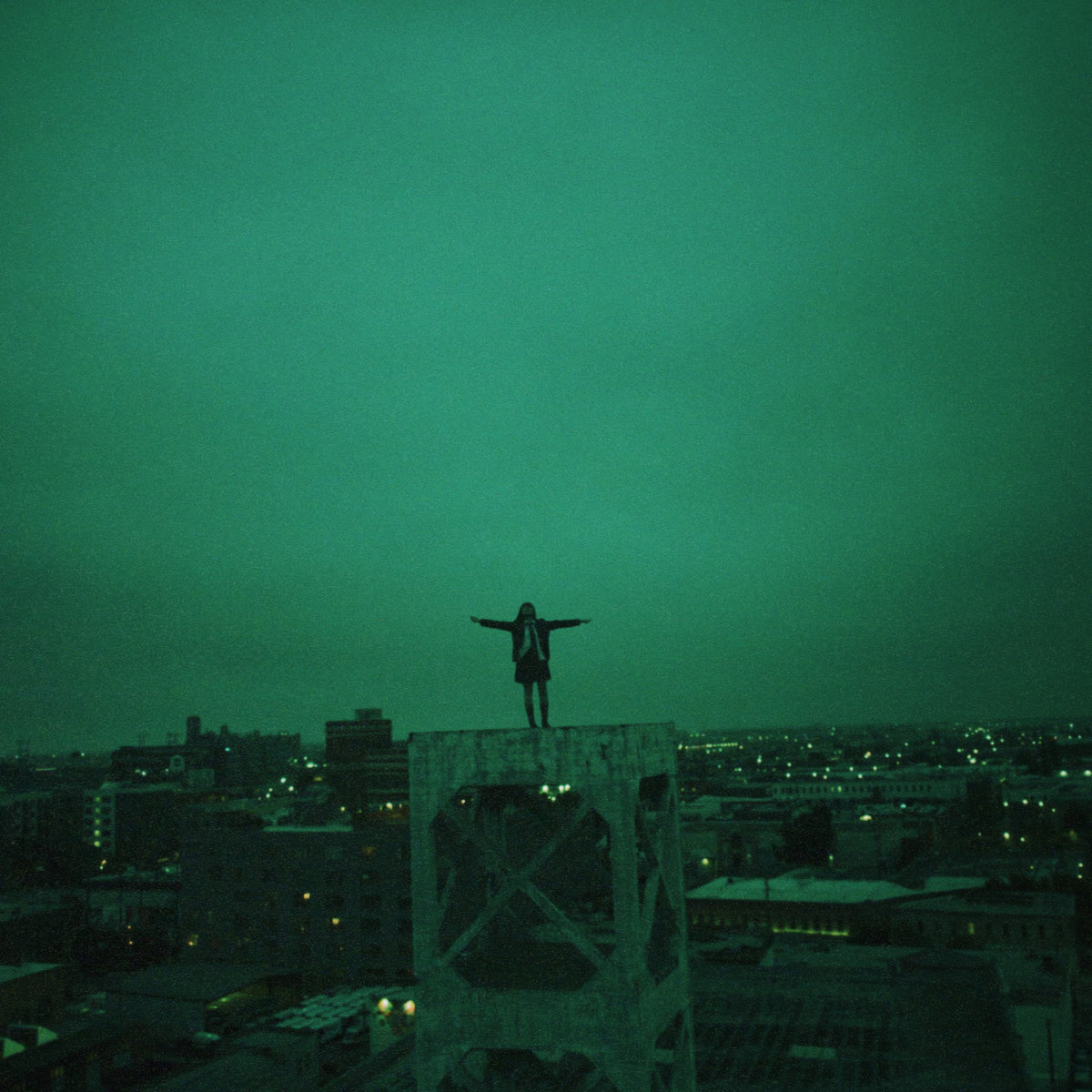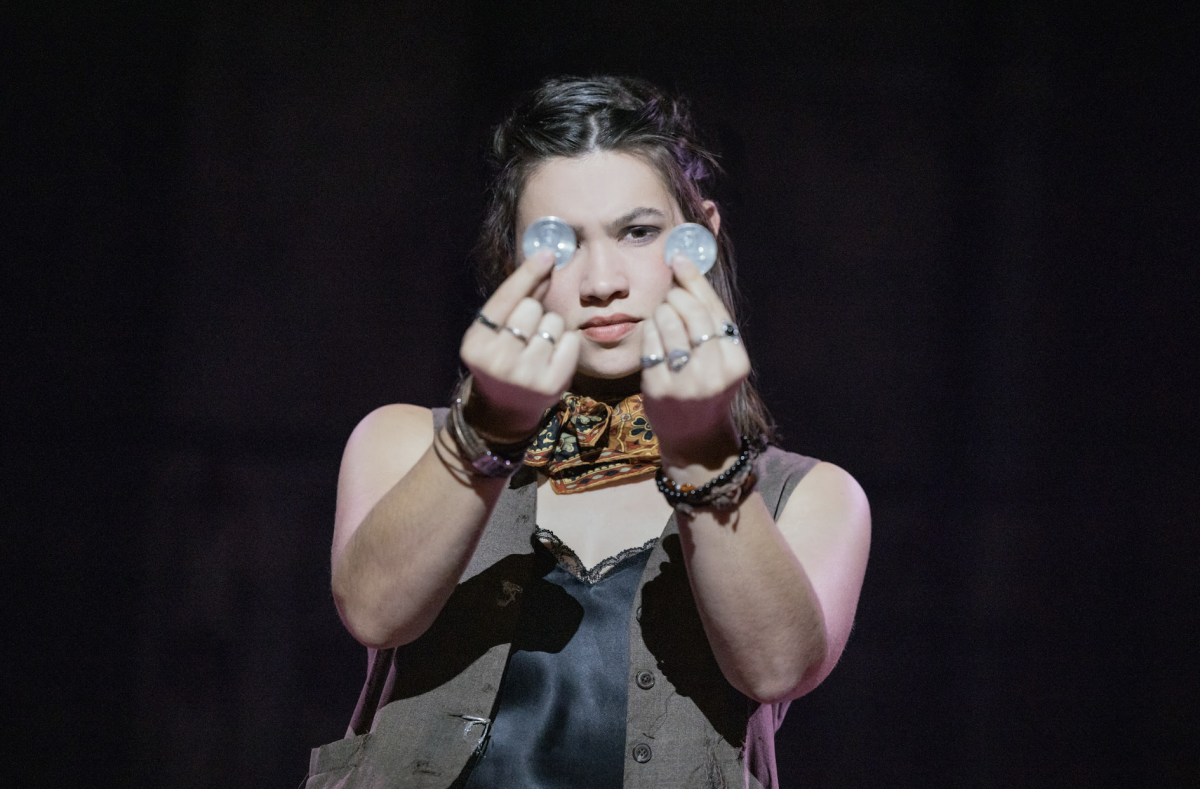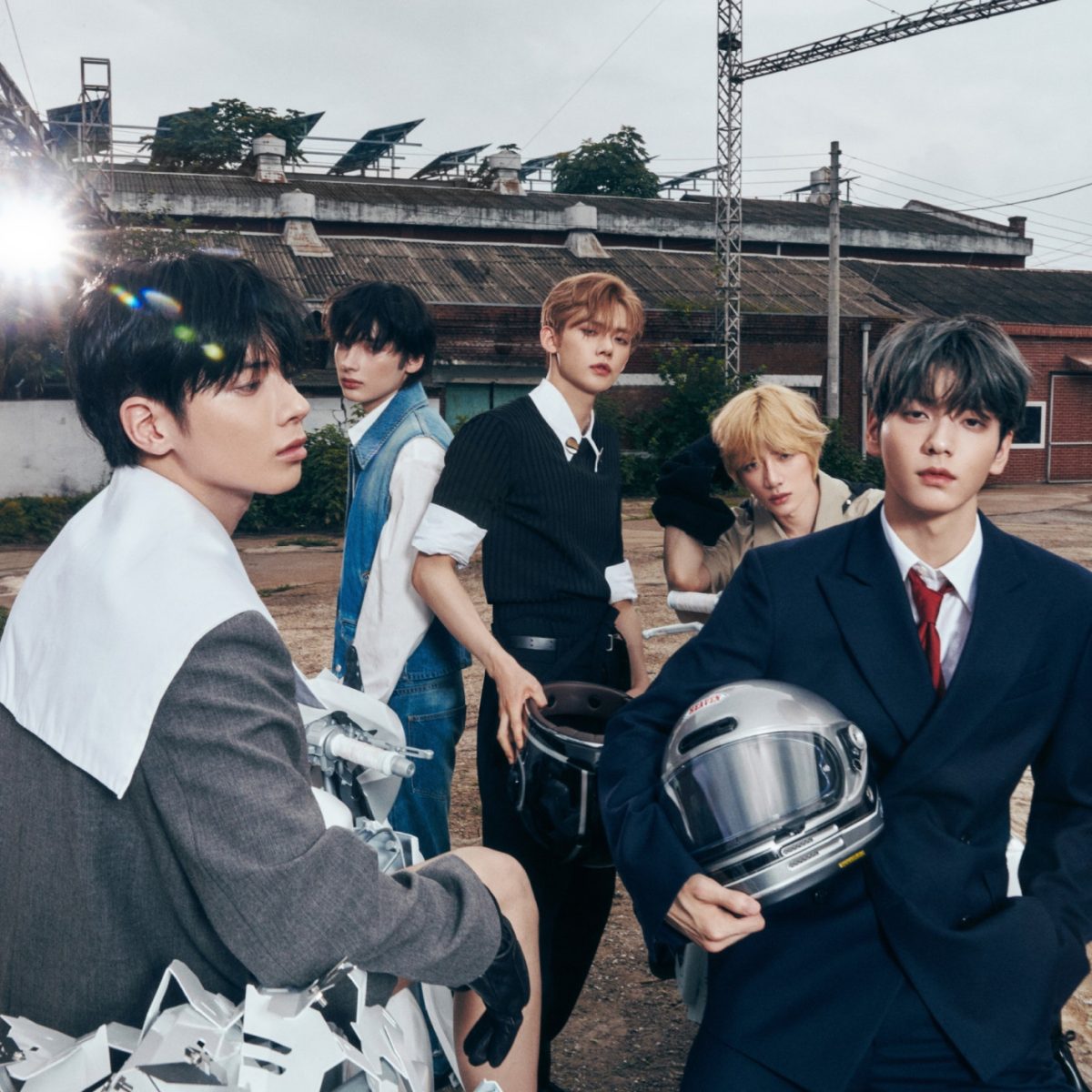On Oct. 28, Tyler, the Creator released his seventh album, “Chromakopia.” His new album delves into ideas of fatherhood, privacy, and fulfillment while incorporating sonic aspects of rap, R&B, and jazz with his signature sounds.
“Chromakopia” kicks off on a strong note with “St. Chroma,” featuring Daniel Caesar. The song explores the feeling of being boxed into a specific genre, with Tyler explicitly denouncing artistic conventions frequently used to categorize “great” music: “Give a [f—] about tradition, stop impressing the dead.” At the end of the song, Tyler considers retiring from music despite his momentum, asking if he should “keep the light on or gracefully bow out.” As a fan of his music, it is bittersweet to imagine his retirement because I want to hear more new music from him and watch him perform live. However, after hearing how being in the limelight has affected his life, I would also support his decision to step back.
One of my favorite songs, “Noid,” gives more context to Tyler’s struggle with the spotlight. Here, he talks about the overwhelming nature of fame and how overbearing fans can make it difficult to maintain a sense of privacy. To reflect his discomfort, the production includes rigid sounds and high pitched synths that leave the listener with an unsettling feeling.
Aside from discussing fame, throughout “Chromakopia,” Tyler unveils his complicated relationship with love. Settling down doesn’t make sense to Tyler at this point in time. He explains that music gives him the fulfillment he needs, and when he needs more, Tyler turns to fashion and cinematography. In the teaser videos for the album, these additional creative passions were put on display, which aided in the lyrical storytelling of his songs.
The song “Darling, I,” featuring Teezo Touchdown, is an ode to the consistent pattern of falling in love but never being satisfied by one person. He compares the different cars he owns to different past relationships, showcasing that his desires are ever-changing and multi-faceted. Although I understand that different people may fulfill different needs, this sentiment overlooks the beauty in choosing that special person to be in your life — even if they are missing something that someone else could have given you.
Another central theme on this album is parenthood. “Tomorrow” revolves around the anxiety of having kids and whether or not it is the right time for him. It also introduces themes of being in a different stage in your life than others around you. I found that this song offered a humorous perspective to a more serious album, as I could picture the juxtaposition of his friends showing him pictures of their kids while Tyler only has pictures of his different cars to share.
I particularly loved this song because the idea of growing at a different pace from those you love really resonated with me. My friends and I are in such different stages, with some being single and some being married. It encapsulates the experience of being in your late 20s and early 30s: when everyone is at varying stages of life, but you still find ways to maintain connections across those differences.
The anxiety of parenthood comes back in “Hey Jane,” a vulnerable moment on his album about a possible pregnancy scare. The first part is from his perspective, and the second part is in hers. He talks about the push and pull of not being ready for a kid but also considers women’s internal clock as he debates the right decision. Bringing up this idea about an internal clock implies that his partner was coming close to an age where having kids would be harder, so the choice to follow through was something to heavily consider even if Tyler wasn’t ready for that. To hear someone so openly talk about this internal clock was surprising to me because it’s a fear that many women struggle with but don’t really talk about in the media.
Vulnerability isn’t something found in many of Tyler’s songs, as he typically avoids heavy topics. Tyler’s music has always felt juvenile and rugged, which is not the ideal space to bring up topics like pregnancy scares or complicated family relationships. With the growth he is naturally experiencing, I don’t particularly expect his musical style to change as much as the content he explores in his lyrics and maybe even in his future cinematography projects.
Tyler’s maturity shows through in the themes previously talked about, and in the song “I Hope You Found Your Way Home,” he concludes that he is fundamentally unprepared to have children at the moment. The break of this song is an electric-jazz sound that closes off the album with a cathartic feeling of completion, but could that be a front to convince himself that he feels complete without kids or settling down? Musically, it is a clean ending, but thematically, it is ambiguous and offers room for speculation, leaving me wanting more music from him to hear the next part of his story.









